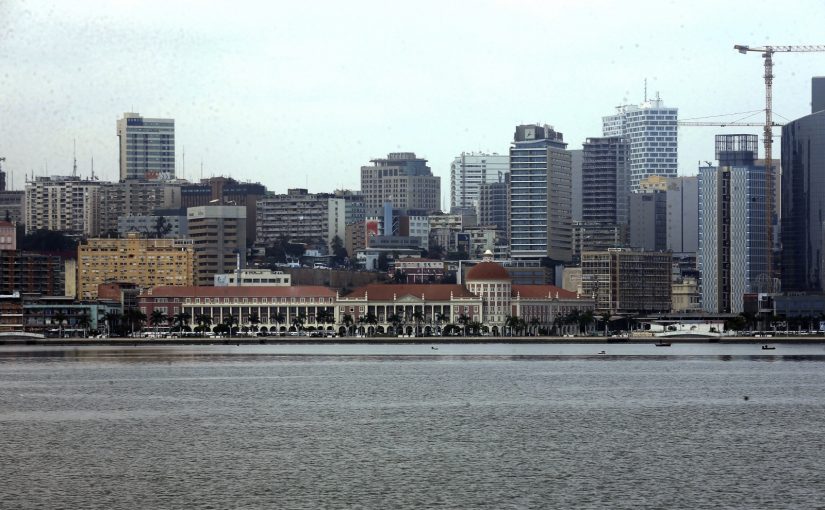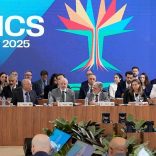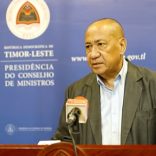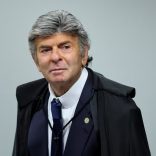Guinea-Bissau: Lawyers barred from talking to Italian businesswoman detained on Friday
Angola: Country shows ‘significant improvement’ in corruption perception index 2021 – report

File photo: Lusa
Angola is one of the sub-Saharan African countries with the greatest progress in the Corruption Perception Index 2021, released Tuesday by Transparency International, which notes a “significant improvement” in the country after the election of President João Lourenço.
The Corruption Perception Index (CPI), organised by Transparency International (TI), ranks 180 countries and territories by levels of perceived corruption in the public sector on a scale of zero (highly corrupt) to 100 points (clean corruption perception).
The average for Sub-Saharan Africa is 33 points, the lowest in the world, and 44 countries are ranked below 50 points. Among the Portuguese-language countries, Portugal appears in the index in 33rd position with 62 points, followed by Cabo Verde (39th position, 58 points); São Tomé and Príncipe (68th position, 45 points); East Timor (82nd position, 41 points); Angola (136th position, 29 points), Guinea Bissau (162nd position, 21 points) and Equatorial Guinea in 171st position, with only 17 points, with some particularly critical remarks in the annual report of the Berlin-based NGO.
Read: Mozambique: Country rises two places to 147th in Corruption Perceptions Index
Angola – which in the CPI 2021 has 29 points, up 7 points since the 2012 index – is registering “a significant improvement” following the election of the President, João Lourenço, in 2017, who has taken significant steps to crack down on corruption, the TI report notes.
“The authorities have carried out high-level corruption investigations into members of the former ruling family, including the daughter of the former president and former head of state oil company Sonangol, Isabel Dos Santos – exposed by the ‘Luanda Leaks’ investigation and recently indicted by the US government for ‘significant corruption'”.
The report points out, however, that: “Investigations are rarely opened in other cases, raising doubts about the existence of selective justice”.
The organisation stresses that “in a 2019 survey, 39 per cent of Angolans said the president was using the fight against corruption as a tool against political rivals and a majority also said that those who denounced corruption were at risk of retaliation.”
At the other end of the spectrum, Equatorial Guinea has stalled at the bottom of the CPI with 17 points, and the country “remains a kleptocracy”.
The TI report highlights the investigation by the International Consortium of Investigative Journalists (ICIJ), whose “Organized Crime and Corruption Reporting Project” accused earlier this year Gabriel Mbega Obiang Lima, son of President Teodoro Obiang and Minister for Mines and Hydrocarbons of Equatorial Guinea, of “diverting abroad millions from state funds and bribes”.
The Transparency International text welcomes, on the other hand, the definitive decision of French justice, whose ruling last July ordered the confiscation of 150 million euros in assets seized in France from another son of Equatorial Guinea’s head of state, Vice-President ‘Teodorin’ Obiang.
“Some justice has been done in the case of another member of the Obiang family,” Transparency International points out, in a court case in which the organisation was among the group of complainants.
The report makes reference to another Lusophone country, Brazil, in the person of its President, Jair Bolsonaro, who “used the fight against corruption as a campaign banner to attract an electorate disillusioned with traditional politics, tired of corruption and demanding respect for human rights”.
However, “contrary to the promises”, not only does IT not register “progress in the fight against corruption”, but it also points to the taking of “anti-democratic, rights and regressive measures in the fight against this evil”.
As for sub-Saharan Africa, in general terms, TI stresses that, according to the latest Afrobarometer surveys, the majority of the African population believes that corruption is on the rise, while expressing dissatisfaction with the way democracy works.
“This is not surprising,” TI points out, explaining that “persistent corruption has gone hand in hand with unconstitutional shifts of power in various parts of the continent.”
“Governments must recognise that sustainable progress in the fight against corruption can only be achieved if societal and institutional checks on power are ensured,” it adds.
The covid-19 pandemic, on the other hand, “cannot be used as an excuse for governments to restrict people’s right to information or freedom of expression,” the NGO adds.
Leaders across sub-Saharan Africa “must make efforts to accelerate asset recovery” and again increase global action against illicit financial flows, helping to prevent capital flight, “so that natural resources and public funds can be used to support people living in the region, not elites”, TI suggests.













Leave a Reply
Be the First to Comment!
You must be logged in to post a comment.
You must be logged in to post a comment.